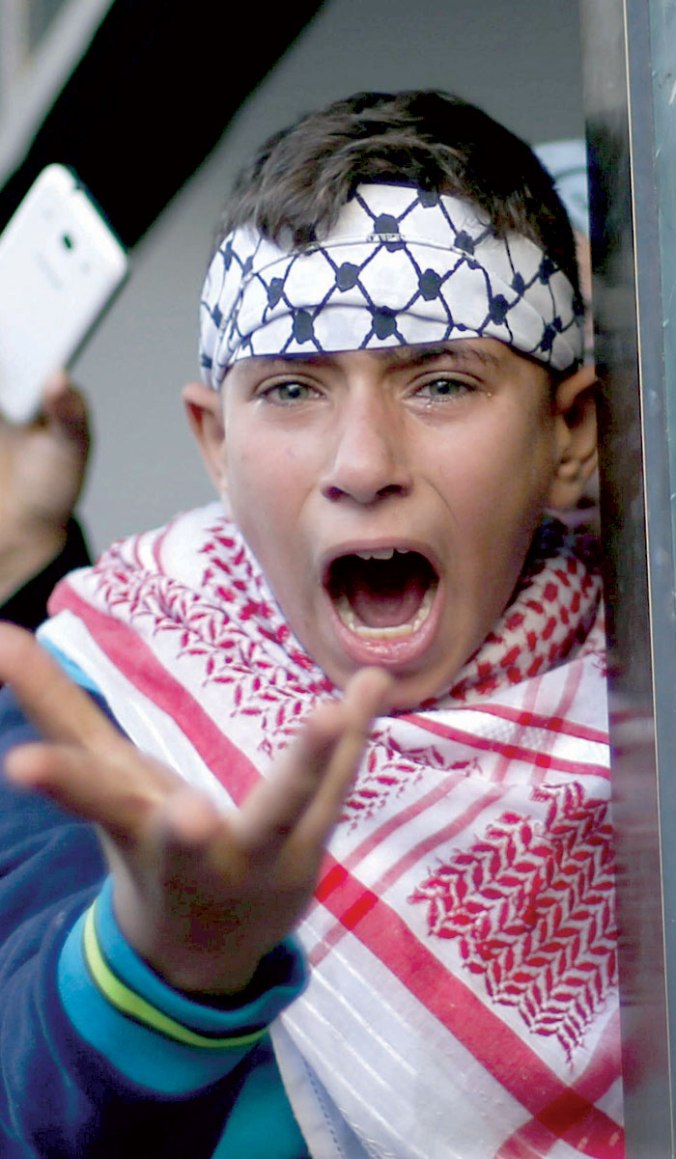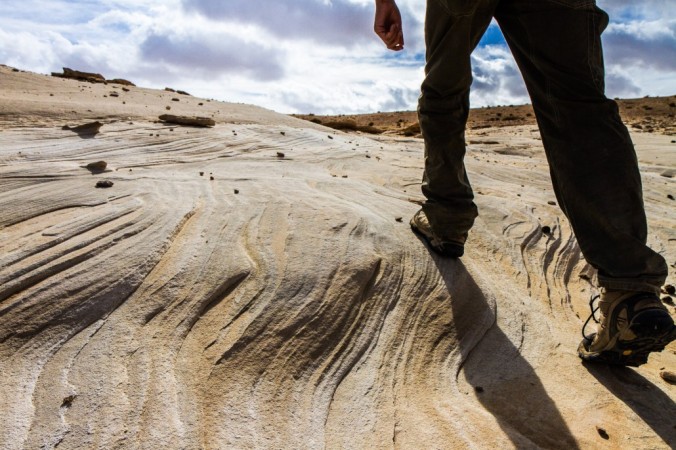
Credit: Abraham Path Initiative
Jenin – For backpackers venturing on biblical trails or exchange and foreign students learning Arabic, “homestays” dotting the West Bank offer a good temporary housing option.
Homestays offer comfortable and clean single or shared rooms with a private toilet. The stay is full board, with home-made Palestinian cooking and snacks between hot meals. The rate is about one-third what West Bank hotels charge.
More important, for an exchange or a foreign student learning Arabic, homestays offer a good place to be: Living with a Palestinian family to become steeped in the culture, language, history, customs and traditions and handicrafts first-hand.
Homestays began in the 1990s to lure foreign tourists to the West Bank in the wake of an uprising against the Israeli occupation. It was adopted by the Palestinian non-governmental organisation Rozana Association, based in the West Bank town of Birzeit.
Homestays provide Palestinian families an opportunity to earn extra money to shore up their finances.
Since homestays are scattered across at least seven cities and towns in the West Bank — from Hebron in the south to Jenin and Nablus in the north — they attract pilgrims, historians and hikers on Masar Ibrahim al-Khalil — Abraham’s Path.
The trail stretches over several hundred kilometres from Egypt’s Sinai in the south, through Israel to the West Bank. Another route crosses Jordan. Plans include development of a trail from Mecca, Saudi Arabia, linking it with Jordan, and from Jordan across Syria to southern and south-eastern Turkey.
The trek across the Middle East “retraces the journey of Abraham, the legendary ancestor of over half of humanity, who is known for his hospitality and kindness towards strangers,” according to the Abraham Path website.
Rozana Chairman Raed Saadeh said for many families, homestays “created a source of income and cultural exchange. It also attracts visitors to become more involved in the issues of local communities.”
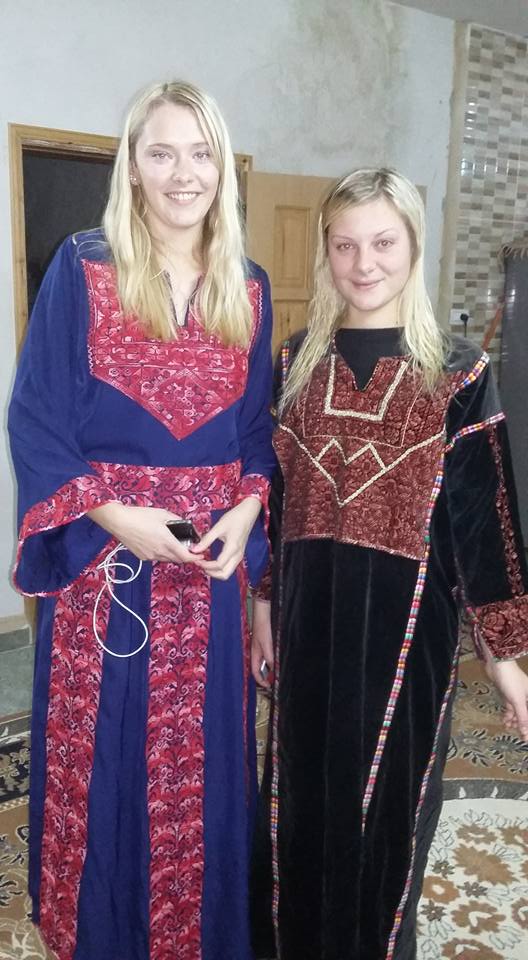
Swedish school girls wearing the traditional Palestinian dress during a stay at one of the Palestinian homestays in the village of Araba, near Jenin. (Credit: Remah Abbas)
Homestays charge a fixed rate of $30 per night, a competitive price compared to local hotels that charge up to $100 per night for a shared room and two meals or only a bed in a hostel for $20. Homestay hosts, mostly women, produce handicrafts and food products.
Ayat al-Mardawi became a homestay host in Jenin in 2009, hoping to generate additional income and achieve personal independence.
A housewife and a mother of six, Mardawi lives in Arraba, 12km south-west of Jenin. The town and its surroundings are speckled with a variety of archaeological sites, including Roman wells and springs, castles that protected the area from intruders, Byzantine churches and Sufi shrines on hills overlooking agricultural fields, forests and terraces.
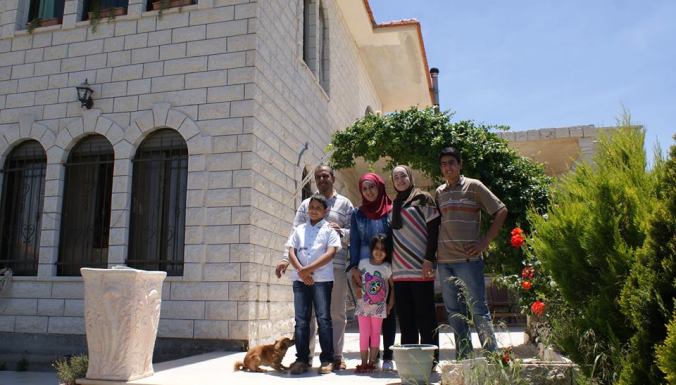
The Mardawi family posing in front of their house turned homestay in Jenin. Credit: Ayat Mardawi.
Mardawi was not capable of generating a second income to help her husband provide for a relatively large family until the Abraham Path Initiative. With a smile that doesn’t leave her face and a friendly attitude, she said, “Running my own business was a dream that has come true.”
“I have been praised for my culinary skills since I first started cooking and I decided it was my opportunity to transform my passion into a profitable business,” she said.
Initially, Mardawi only cooked for backpackers walking Abraham’s Path but soon the second floor of her house was furnished for the use of guests and buzzed with life.
Samah Abu Nima, from the village of Battir, 6.4km west of Bethlehem, used the promotional platform for homestays to promote her homemade pickled vegetables and fruit.
While it is too early to evaluate the economic effects of homestays on the overall economy, Saadeh said they add value and diversity to the area’s tourism sector by providing a great opportunity for visitors to meet and learn about Palestinian heritage and civilisation.
Already experiencing the benefits of direct interaction between local communities and foreigners, Mardawi said: “Many of my guests are hungry to know about the political situation and about us as the occupied people. This is a huge chance for us to show the world that we are not terrorists.”
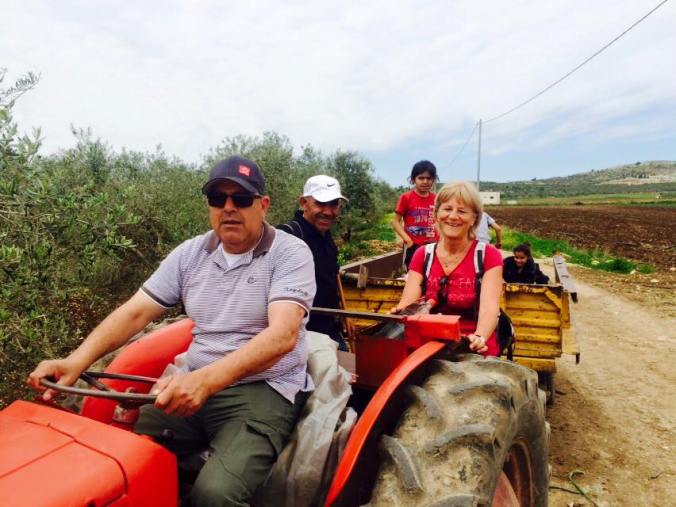
Rozana staff tour north of the West Bank with a German tourist promoting cultural exchange and understanding. Credit: Sari Hamouri.
Stefan Szepesi, travel blogger and author of Walking Palestine; 25 Journeys into the West Bank, said the Mardawi family is the finest example of the importance of homestays.
Frequently writing about his experiences trekking through Sinai to Turkey, he said: “The blossoms are there, too, if you look past the news headlines, if you experience the region through travel, if you take on the humble act of walking through its communities.”
The Mardawi family has been running its business for almost two years and describes the experience as phenomenal. With the help of her husband Mustafa and her children, Ayat Mardawi hosts at least three visitors a month, with some staying for one night, others for weeks.
“Although an average of three people per month is not enough to generate a sufficient second income, we are confident our business will grow especially when many choose to return to our house or recommend us to friends and family,” she said.
Mardawi and more than a dozen other homestays hosts share more than a house or a dining table but also their time, affection and friendship that runs beyond each stay with the help of social media.
“Our visitors look for several things in the place where they are going to stay, most importantly safety, delicious food and originality,” she said. “And by originality I mean the opportunity to live as a Palestinian for a little bit.”
